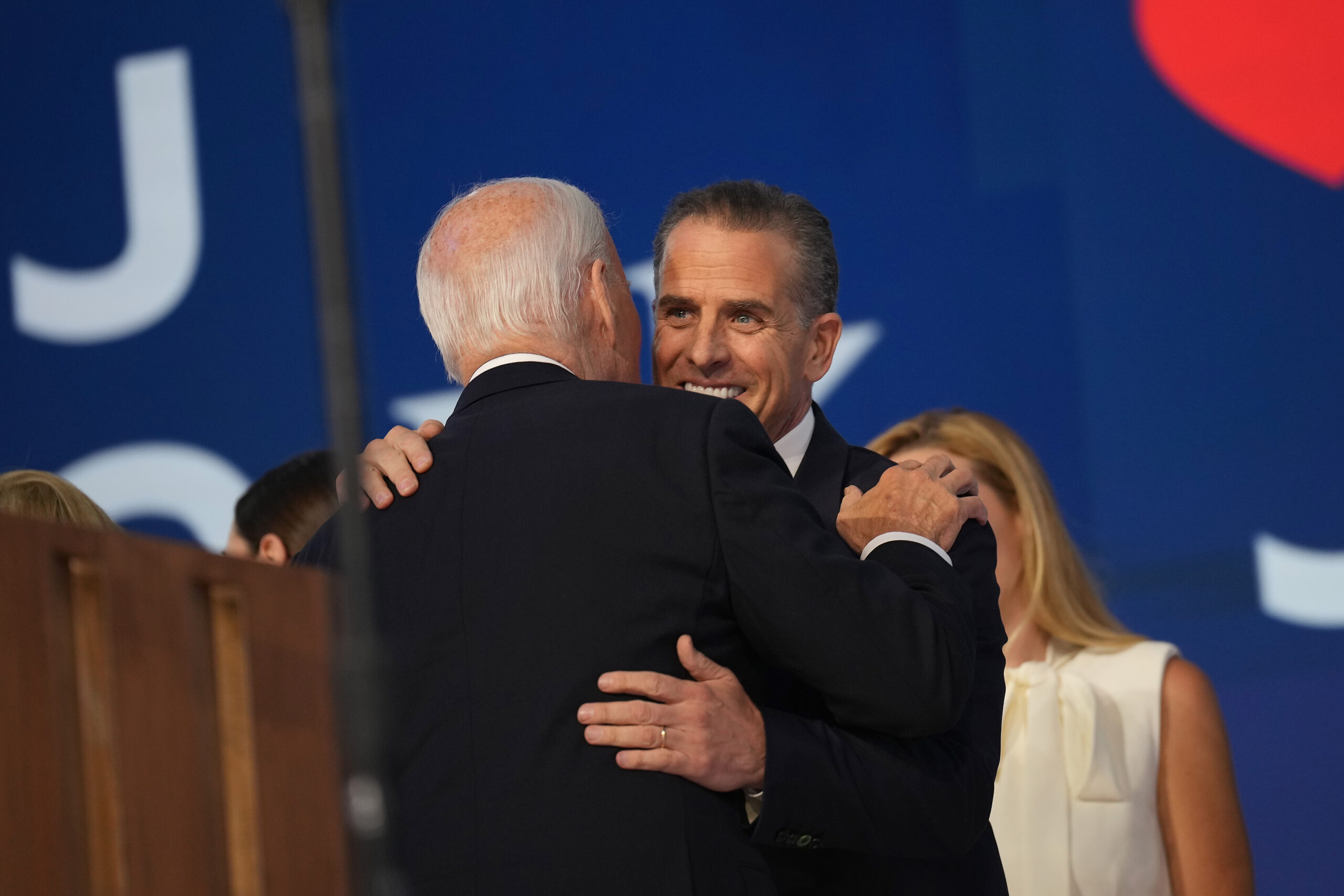
In a move that shocked some but seemed inevitable to others, President Joe Biden issued a full pardon for his son Hunter Biden, just weeks before his scheduled sentencing on gun and tax convictions.
The decision, announced after a Thanksgiving retreat with family, underscores Biden’s deep bond with his children but has ignited fierce criticism, even among allies, and raised serious questions about his legacy.
A Father’s Dilemma or a Breach of Trust?
Biden’s pardon reflects his well-documented anguish over his family’s tragedies, including the loss of his first wife and daughter in a car crash and the death of his eldest son, Beau, from cancer. For years, the president has privately voiced concerns about Hunter’s battle with addiction and his health struggles.
Yet, by granting clemency, Biden—a president who campaigned on restoring trust in government and respect for the rule of law—risks undermining his credibility. Colorado Governor Jared Polis, a Democrat, criticized the pardon, calling it a “bad precedent” that “tarnishes” Biden’s reputation. “No one is above the law,” Polis wrote on social media, adding that while Hunter’s struggles elicit sympathy, the pardon sets a dangerous standard.
Political and Legal Repercussions
The pardon comes at a politically fraught time for Biden, who recently lost his reelection bid to Donald Trump following a faltering campaign. Trump and his allies have pounced on the pardon as evidence of Biden’s hypocrisy, with Trump calling it “an abuse and miscarriage of justice.” Trump spokesperson Steven Cheung vowed that under the incoming administration, “the system of justice will be fixed.”
Adding fuel to the fire, the pardon extends not only to Hunter’s gun and tax offenses but also to any potential crimes dating back to 2014. Critics argue this effectively shields Hunter from further investigations into his controversial foreign business dealings, a frequent target of Republican attacks.
Shifting Stance Raises Eyebrows
Biden’s decision to pardon Hunter also stands in stark contrast to his previous public statements. As recently as June, Biden categorically ruled out granting a pardon, telling reporters, “I will do that and I will not pardon him.” White House Press Secretary Karine Jean-Pierre repeatedly echoed this stance, insisting the answer was a definitive “no.”
The abrupt shift, reportedly finalized during Biden’s Thanksgiving break in Nantucket, has raised eyebrows even within the administration. Some officials privately admitted discomfort, noting parallels between Biden’s reasoning and Trump’s longstanding accusations of politically motivated prosecutions.
Historical Context and Unique Timing
Presidential pardons for family members are not unprecedented. Bill Clinton pardoned his brother Roger for drug charges, and Donald Trump issued clemency for his son-in-law Jared Kushner’s father, Charles Kushner. However, Biden’s pardon is notable for its timing, coming before Hunter was sentenced and covering a broad range of potential charges.
Legal experts have pointed out that the charges against Hunter—related to purchasing a firearm while using illegal drugs and failing to pay taxes—were unusual but not without merit. Hunter himself admitted to some of the conduct in his memoir and pleaded guilty to tax-related offenses.
A Divided Reaction
Biden defended his decision, saying the prosecution of his son had been tainted by politics. “I believe in the justice system, but raw politics infected this process and led to a miscarriage of justice,” he said in a statement. “I hope Americans will understand why a father and a President would come to this decision.”
Still, the fallout has been significant. Critics on both sides of the aisle argue the pardon undermines Biden’s stated commitment to accountability and the rule of law. Former Republican Congressman Joe Walsh lamented, “We’ve been screaming ‘Nobody’s above the law.’ Well, Joe Biden just made clear his son Hunter is above the law.”
Implications for Biden’s Legacy
The pardon is the latest chapter in a presidency now defined by personal and political challenges. Biden, who once vowed to unify the nation and rebuild trust in its institutions, finds himself navigating the fallout from his decision while grappling with complex global crises and the prospect of Trump’s return to power.
As Biden’s tenure winds down, the clemency for Hunter Biden could become a defining moment—both a testament to his enduring loyalty as a father and a controversial decision that risks overshadowing his broader accomplishments.